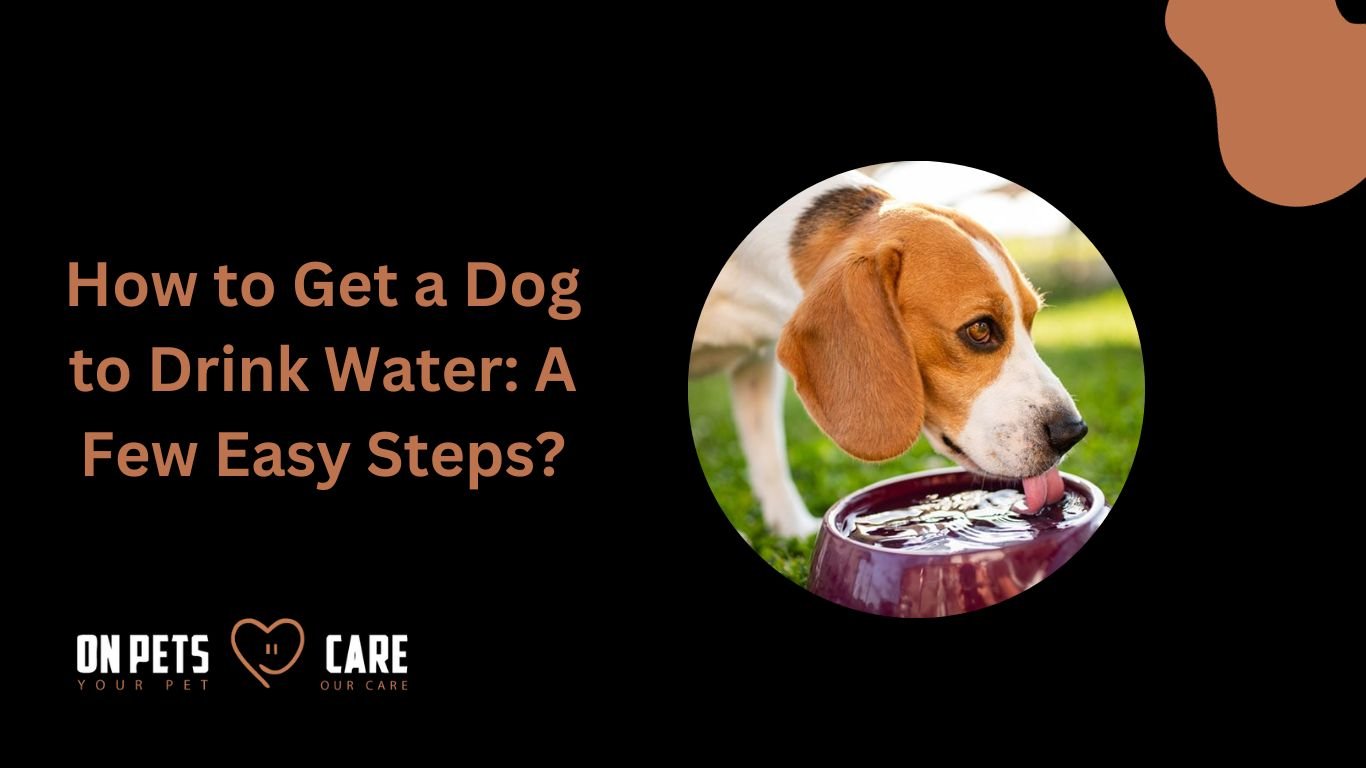How to Get a Dog to Drink Water: A Few Easy Steps?
The Importance of Dog Hydration
When it comes to keeping your furry friend happy and healthy, ensuring proper dog hydration is paramount. In this guide, we will explore the essential steps to encourage your beloved canine companion to drink water regularly. Discover how to address the reasons dogs might avoid drinking water and learn valuable tips for providing optimal Onpets care.
Understanding Dog Hydration
Why is Dog Hydration Crucial?
Dog hydration is not just about quenching their thirst; it’s a matter of life and well-being. Just like humans, dogs rely on water for various bodily functions, including digestion, temperature regulation, and toxin removal.
The Consequences of Dog Dehydration
Dehydration can lead to severe health issues in dogs. From kidney problems to heatstroke, the consequences can be dire. Recognizing the signs of dehydration is the first step in ensuring your pet’s well-being.
Reasons Dogs Don’t Drink Water
Common Reasons for Reluctance
Understanding why your dog might resist drinking water is essential. Some common reasons include unfamiliar water sources, dental issues, and illness. We’ll delve into these issues and offer solutions.
Dental Health and Hydration
Dental problems can be a significant deterrent to proper dog hydration. Learn how to address dental issues and make water more inviting for your furry friend.
Health Conditions and Hydration
Certain health conditions can affect a dog’s desire to drink. We’ll discuss various ailments and how to manage them to ensure your pet stays adequately hydrated.
Steps to Encourage Dog Hydration
Choose the Right Bowl
The type of bowl you use can make a significant difference. Discover the best options to entice your dog to drink.
Maintain Fresh Water
Learn why it’s crucial to keep your dog’s water clean and fresh at all times and get tips on how to do it effectively.
Hydration through Diet
Explore how your dog’s diet can impact their water intake and what dietary adjustments you can make.
Hydration Schedule
Establishing a routine for drinking can help ensure your dog stays adequately hydrated. Learn how to create a hydration schedule that works for your pet.
Incorporate Flavoured Water
Sometimes, a little flavor can go a long way in enticing your dog to drink. Discover safe ways to add flavor to your dog’s water.
Regular Exercise
Exercise can increase your dog’s thirst, making them more inclined to drink. Find out how to incorporate exercise into their routine.
Positive Reinforcement
Learn how positive reinforcement can encourage your dog to develop healthy drinking habits.
Onpets Care: Taking It to the Next Level
Monitoring Your Dog’s Hydration
Keep an eye on your dog’s water intake and learn when to seek professional help.
Consulting a Veterinarian
Sometimes, the issue might require a vet’s expertise. Understand when it’s time to consult a professional.
Community and Support
Connect with other dog owners to share experiences and gain valuable insights into dog hydration.
Conclusion: A Well-Hydrated Dog is a Happy Dog
Ensuring that your dog stays adequately hydrated is a crucial part of responsible pet ownership. By understanding the importance of dog hydration and addressing the reasons behind their reluctance, you can provide the best Onpets care. Follow the steps outlined in this guide, and you’ll be well on your way to having a happy and hydrated canine companion.
FAQs
1. How much water should my dog drink daily?
- Dogs typically need about 1 ounce of water per pound of body weight per day. However, this can vary based on factors like activity level and weather.
2. What can I add to my dog’s water to make it more appealing?
- You can try adding a small amount of low-sodium chicken or beef broth to their water, or use specialized pet water flavorings available in pet stores.
3. Is it normal for my dog to drink less during the winter months?
- Yes, dogs may drink less in cold weather. It’s essential to monitor their water intake and ensure they’re staying adequately hydrated.
4. Can certain dog breeds be more prone to dehydration?
- Yes, some breeds are more susceptible to dehydration due to their size or specific health concerns. It’s crucial to be aware of your dog’s individual needs.
5. What should I do if my dog continues to refuse water despite my efforts?
- If your dog consistently refuses water, or if you notice signs of dehydration, consult your veterinarian immediately to rule out underlying health issues.



